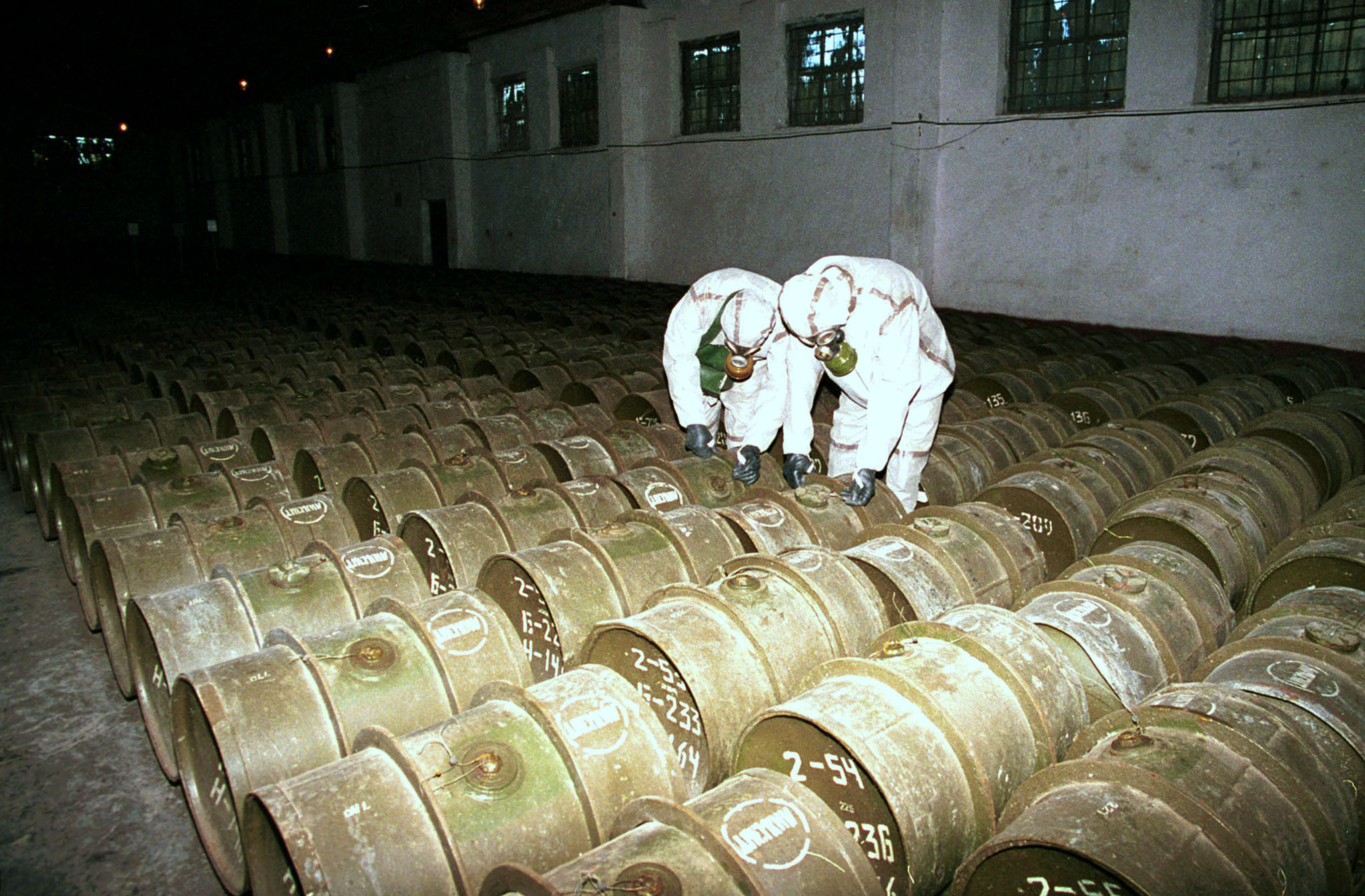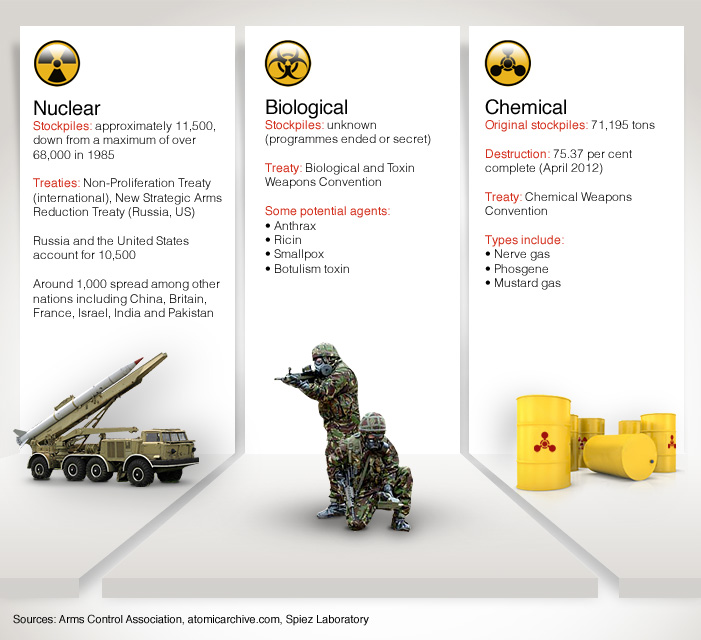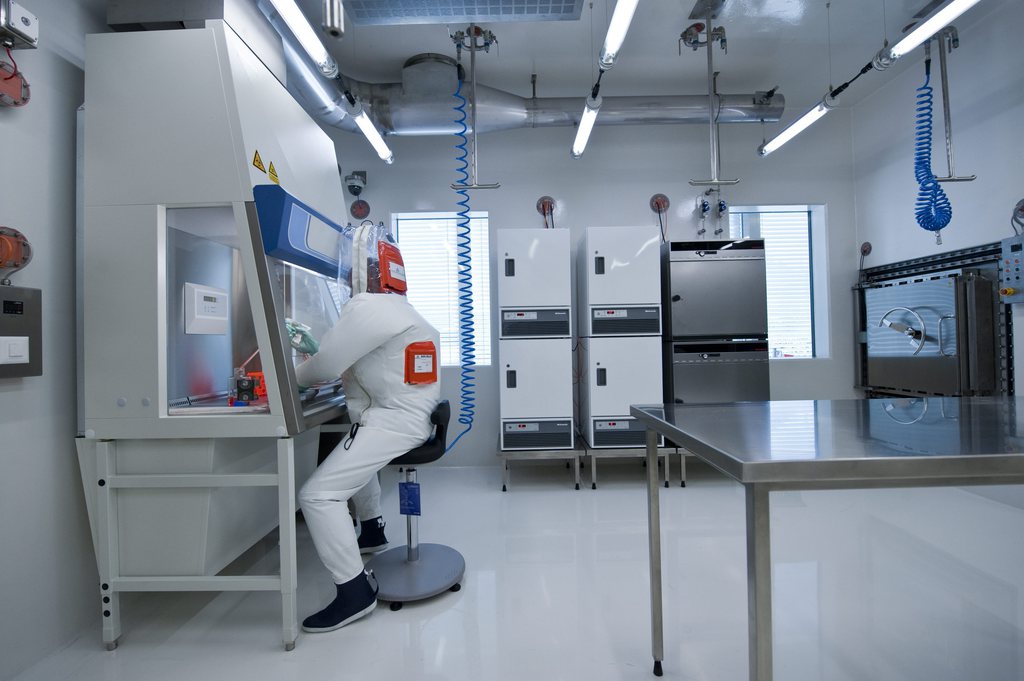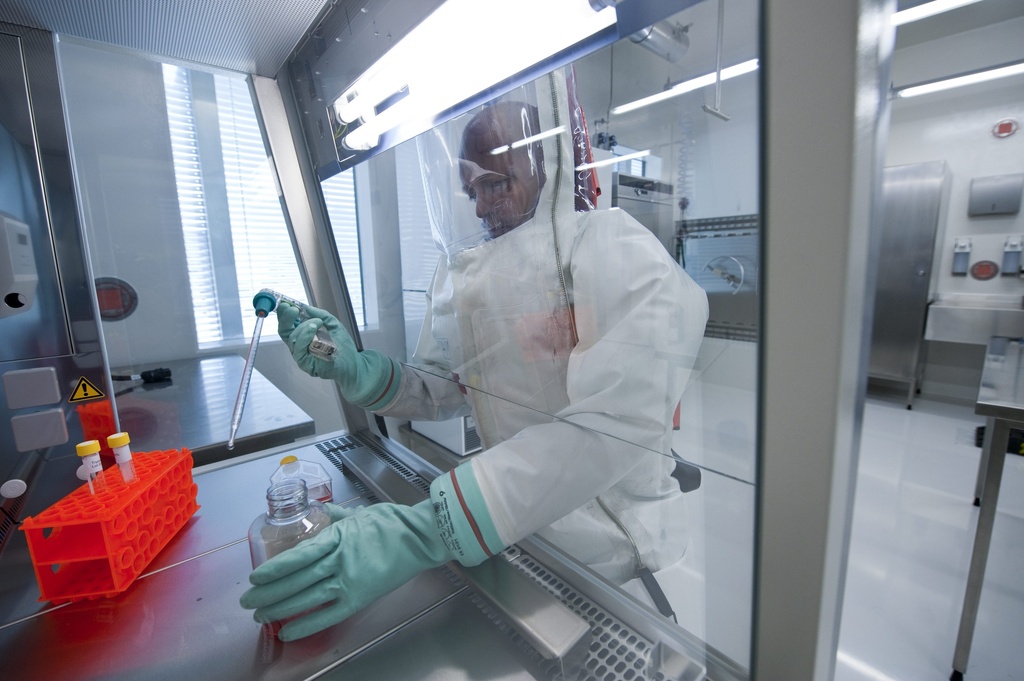New weapons may “present a slippery slope”

Chemical arsenals are officially on the wane, as military stockpiles around the world are slowly destroyed. But Swiss expert Stefan Mogl warns that demands for new kinds of weapons must be monitored closely.
Chemical weapons grabbed the headlines recently when the Syrian government warned that it could draw on its stockpile if outsiders intervened in the ongoing civil war, an announcement that drew widespread condemnation.
These kinds of weapons were last used in Iraq against civilian populations with devastating results under Saddam Hussein in the late 1980s.
Mogl, who is head of the chemistry department at Spiez Laboratory, the Swiss institute for nuclear, biological and chemical protection, is also the chairman of the scientific advisory board of the Organization for the Prohibition of Chemical Weapons (OPCW).
swissinfo.ch: How relevant is monitoring chemical weapons today?
Stefan Mogl: The Chemical Weapons Convention (CWC) entered into force in 1997, and 188 countries have joined it so far. There were significant declared chemical weapons stockpiles, over 70,000 tons, and their destruction is ongoing and will still take some time. Only a few countries still have not joined the convention, which goes some way to explaining the current discussion about Syria.
This is why it is important for all nations to join the treaty and get rid of their chemical weapons programmes if they had any. The convention also has an additional goal that is to ensure that chemical weapons are not used in the future, meaning that civil society as a whole no longer relies on the toxic properties of chemicals as weapons. This objective will remain a very important element for the organisation monitoring the implementation of the treaty.
swissinfo.ch: Should we be monitoring governments or third parties more closely?
S.M.: There are two answers to this. The CWC was set up to prevent chemical warfare on a large scale. In that sense, it is an arms control and disarmament treaty based on nations. In recent years, the use of chemical weapons by non-state actors has become a concern and the UN resolution 1540 reflects that concern. Monitoring of large-scale state or non-state programmes are two very different things.
Size is the major difference. If you look at a 29,000-ton stockpile of chemical agents declared for example by the United States or of 40,000 tonnes declared by the Russians, or the 1,000 tonnes destroyed by India, these are industrial-scale programmes. They include production facilities for agents, production sites for special munitions, test facilities, bunkers for storage.
If someone wants to make a small amount of chemical warfare agent, between one and 100 kilogrammes, that is a much smaller operation, making it harder to monitor. You can also imagine different solutions for delivering this agent, but the impact will be much smaller in any case. The aim is not warfare as covered by the CWC.
swissinfo.ch: There is plenty of speculation that creating a chemical weapon is quite simple. How true is that?
S.M.: It is really an oversimplification. There are two main issues. There is the chemistry side to it. One has to be able to produce, to synthesise a chemical warfare agent in adequate quality that is stable enough to store. Then there is the second point, which is at least as difficult if not more in that chemical weapons only work if they are disseminated properly. From an engineering point of view, this is a tricky question that is not easily solved.
swissinfo.ch: How seriously does the international community take the monitoring of chemical weapons?
S.M.: Even if they are not in the public eye, I believe the CWC and the entity responsible for its implementation, the Organisation for the Prohibition of Chemical Weapons, have had tremendous success compared with other arms treaties. But it’s reaching an important juncture as most chemical weapons have been destroyed. The question in the coming years will be what is the key point of the treaty and what should the OPCW be focusing on. I think it is the prevention of the re-emergence of chemical weapons, including discussions about which chemicals could be potentially used for new weapons.
swissinfo.ch: Should we only focus on weapons of mass destruction or are there other arms we should be concerned about?
S.M.: I believe there is an almost universal international understanding that chemical warfare agents and chemical weapons are no longer tolerated. I think many governments have made that clear and that has been the success of the CWC. On the other hand, there are open questions related to potential new types of chemicals sometimes referred to as law-enforcement chemicals, incapacitating chemical agents that are being considered for special operations under particular conditions. So there is a chance these agents will become an element of discussions about chemical weapons.
swissinfo.ch: During a Moscow theatre hostage crisis in 2002, a number of people were killed by an incapacitating gas used by the police. Is this a specific concern?
S.M.: I think the critical issue at hand is that it is sometimes hard to say what is a law-enforcement operation and what is a combat situation. That raises a lot of tricky legal questions.
For commanders on the ground, it’s very difficult to deal with situations where bystanders or hostages are intermingled with opposing fighters. The only response they have is to use firearms. From this came the desire for a weapon that allows them to sort the good guys from the bad.
It sounds very appealing, but we would like to warn that chemistry doesn’t work like this today and that incapacitating chemicals are toxic. They will cause harm and will be difficult to differentiate from a more traditional chemical warfare agent. Incapacitating agents may present a slippery slope that could lead to an erosion of today’s norm against the use of chemicals as weapons. That’s why it’s important for the international community to make a clear distinction between what is acceptable and not acceptable under the CWC.
Two broad categories: nerve agents and blistering agents.
Nerve agents are designed to kill whereas the others are intended to cause major harm.
Chemical agents either poison or injure by passing through the respiratory system or through contact to the eyes or skin.
A gas mask with the appropriate filter and a protective suit, as are worn by the armed forces (and certain first responder organizations), provide sufficient protection.
Chemical weapons released in a civilian, urban environment, with no protection available, would be extremely dangerous. They would however also dissipate after a certain time depending on weather conditions.
Source: Stefan Mogl, Spiez Laboratory
The CWC aims to eliminate an entire category of weapons of mass destruction by prohibiting the development, production, acquisition, stockpiling, retention, transfer or use of chemical weapons by states.
States, in turn, must take the steps necessary to enforce that prohibition with respect to persons (natural or legal) within their jurisdiction.
All parties have agreed to disarm by destroying any stockpiles of chemical weapons they may hold and any facilities which produced them, as well as any chemical weapons they abandoned on the territory of other states in the past. The parties to the CWC have also agreed to create a verification regime for certain toxic chemicals and their precursors.
The Organisation for the Prohibition of Chemical Weapons is charged with the implementation of the CWC, including verifying compliance and providing a forum for consultation and cooperation among states.
Source: OPCW

In compliance with the JTI standards
More: SWI swissinfo.ch certified by the Journalism Trust Initiative



You can find an overview of ongoing debates with our journalists here. Please join us!
If you want to start a conversation about a topic raised in this article or want to report factual errors, email us at english@swissinfo.ch.